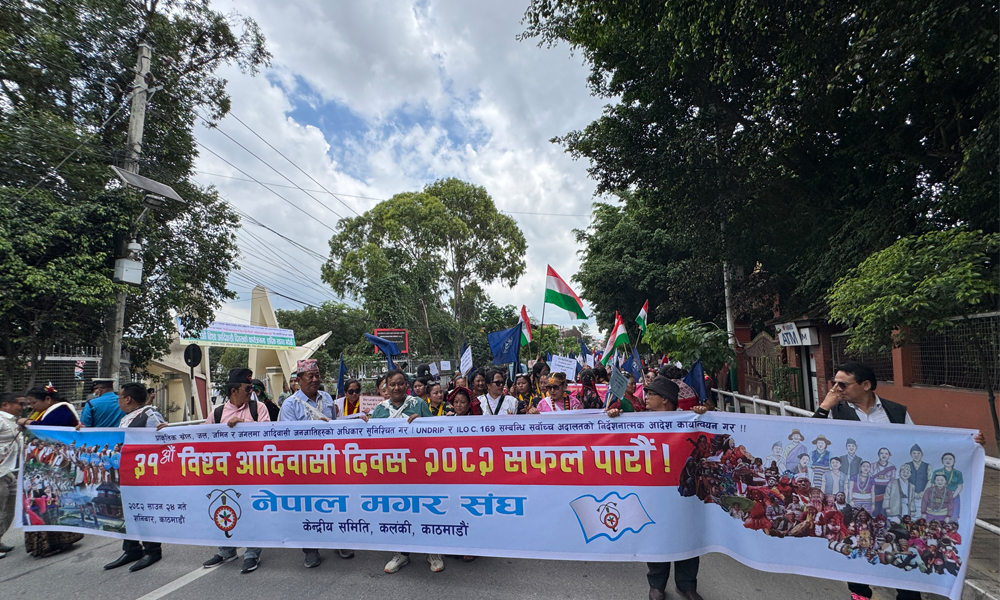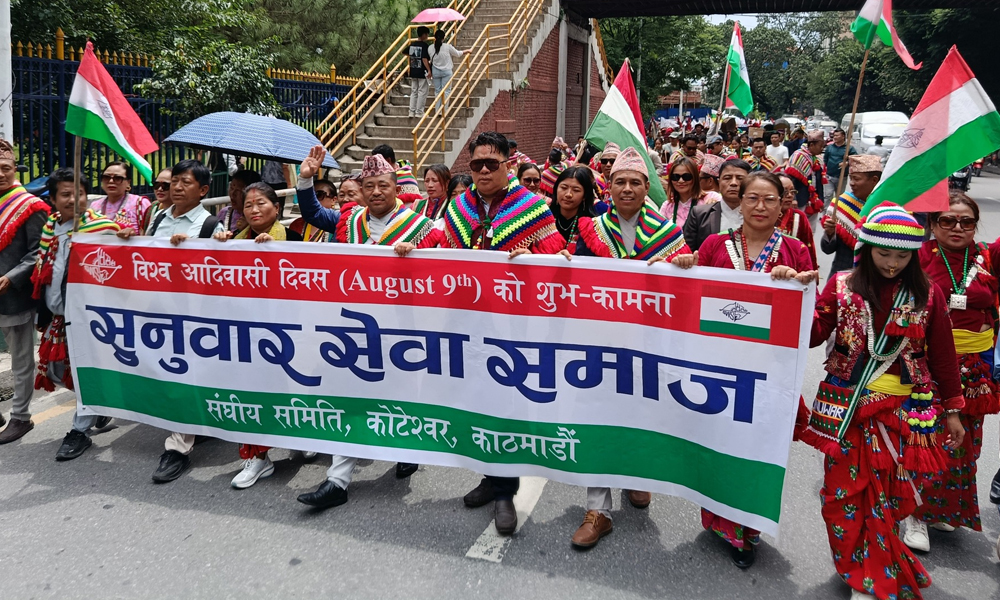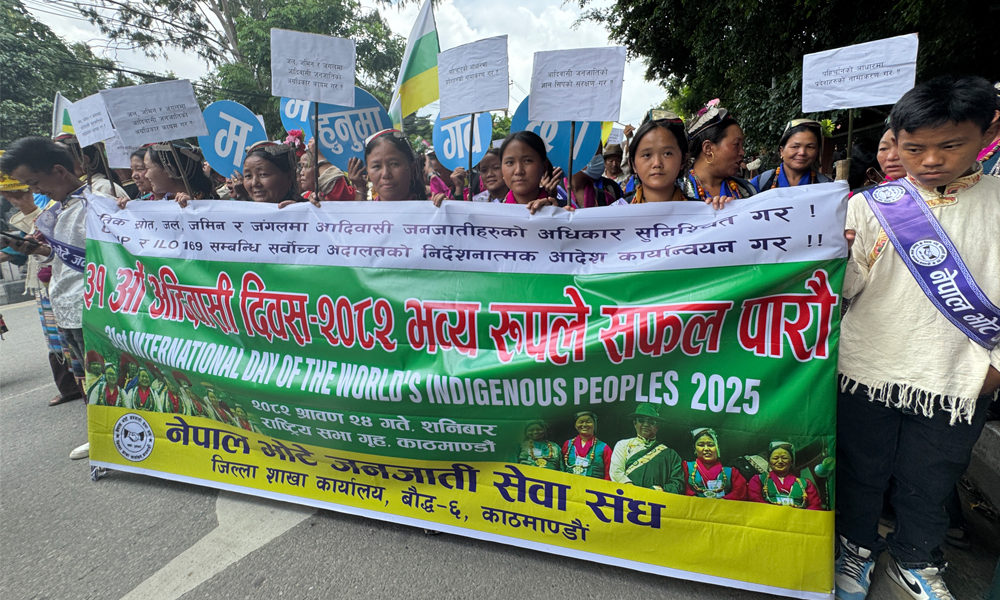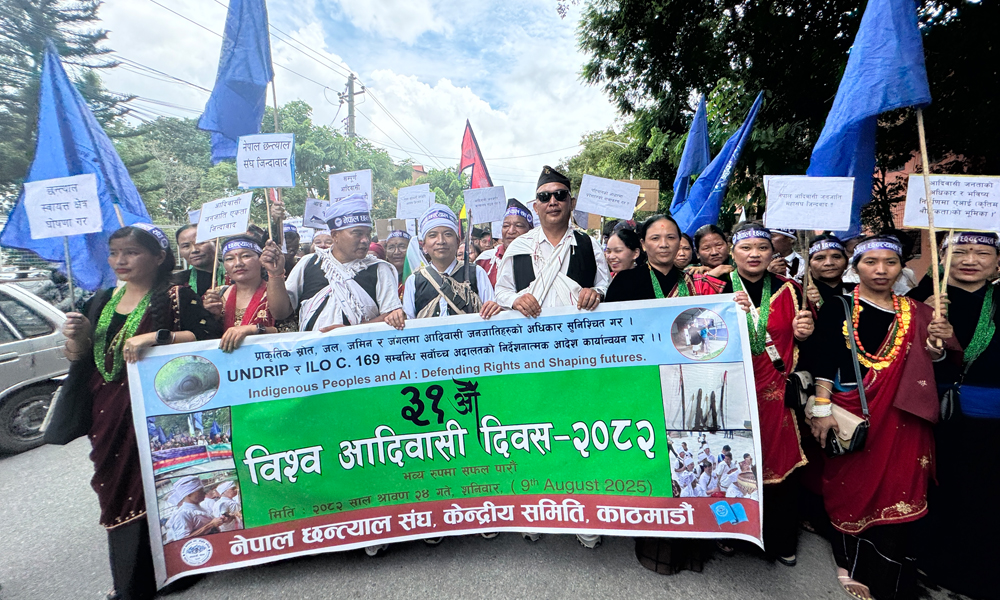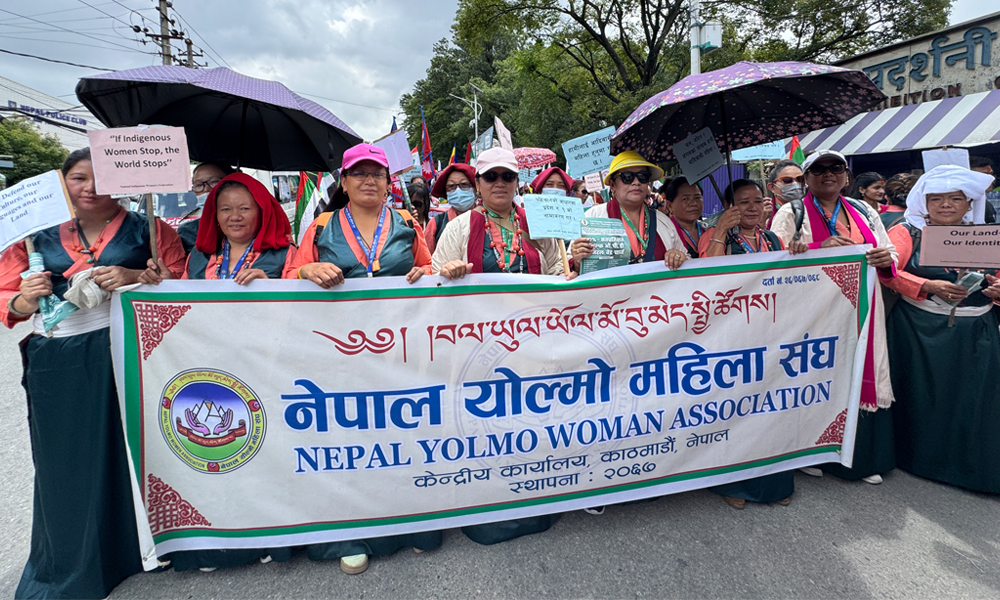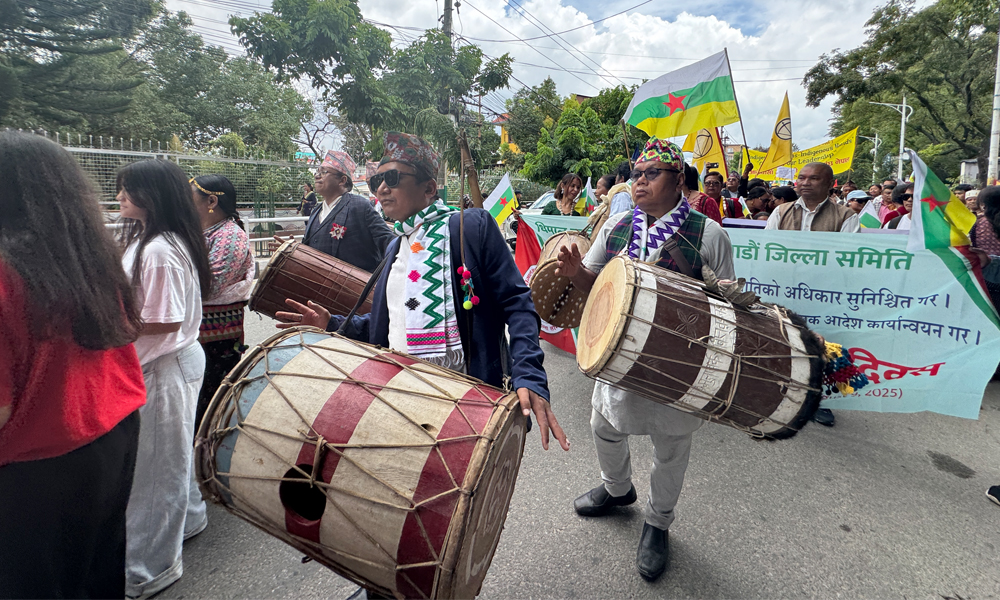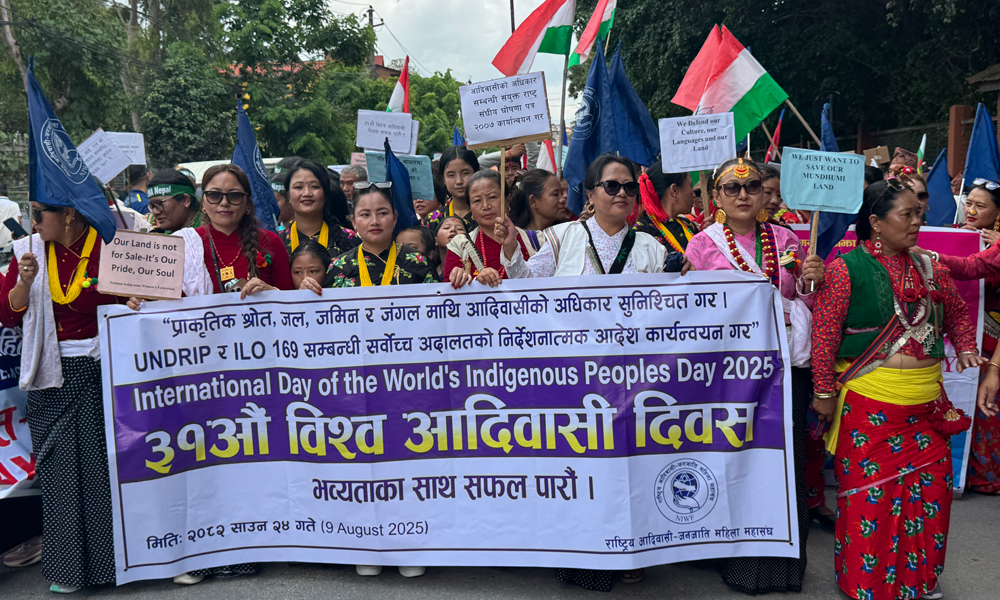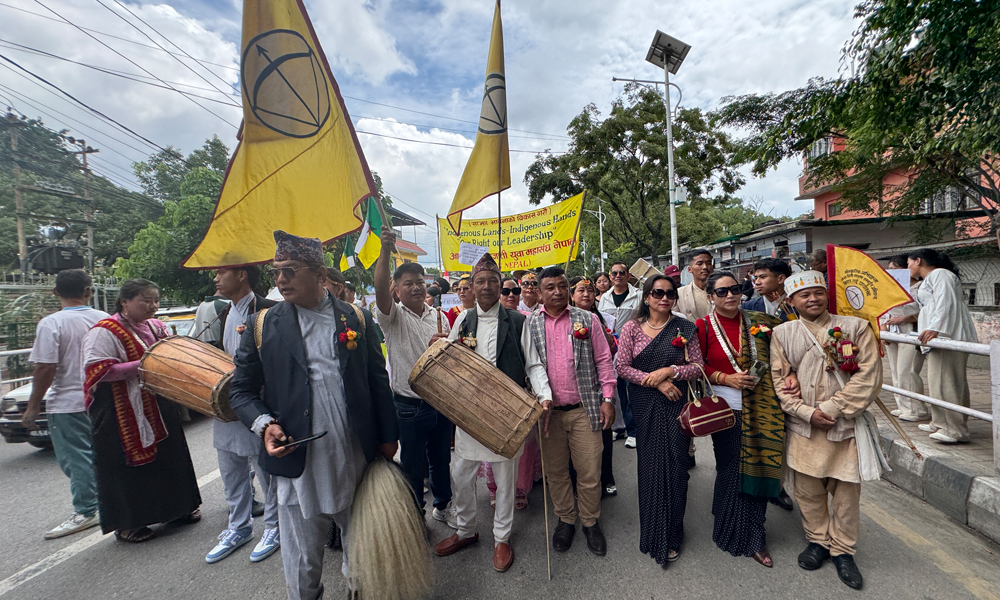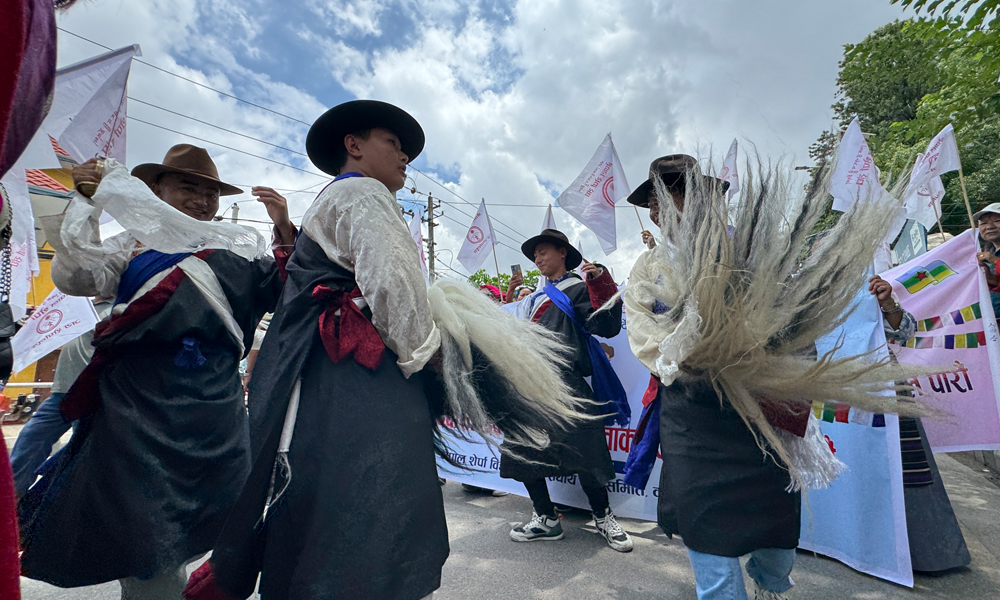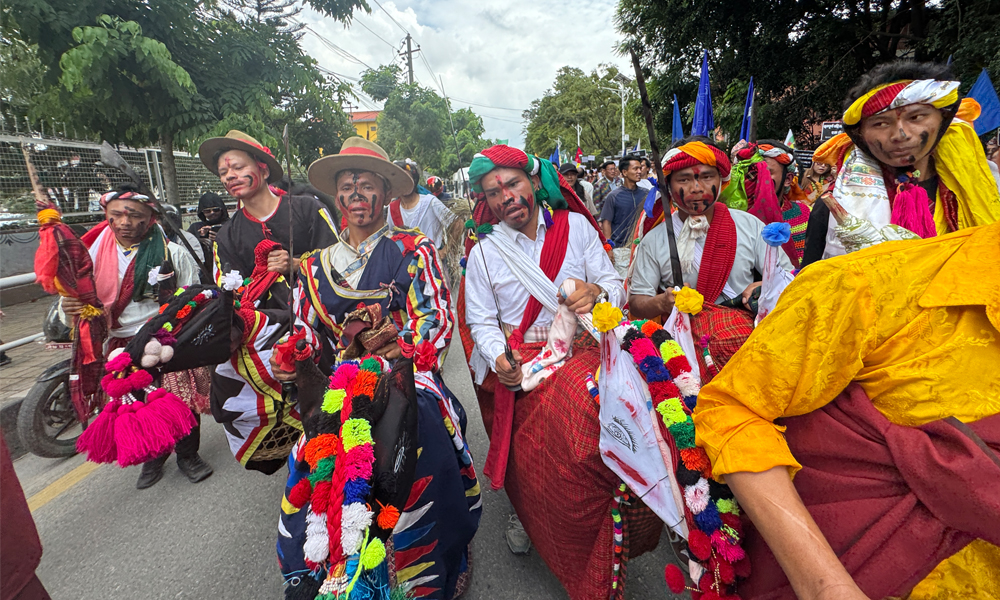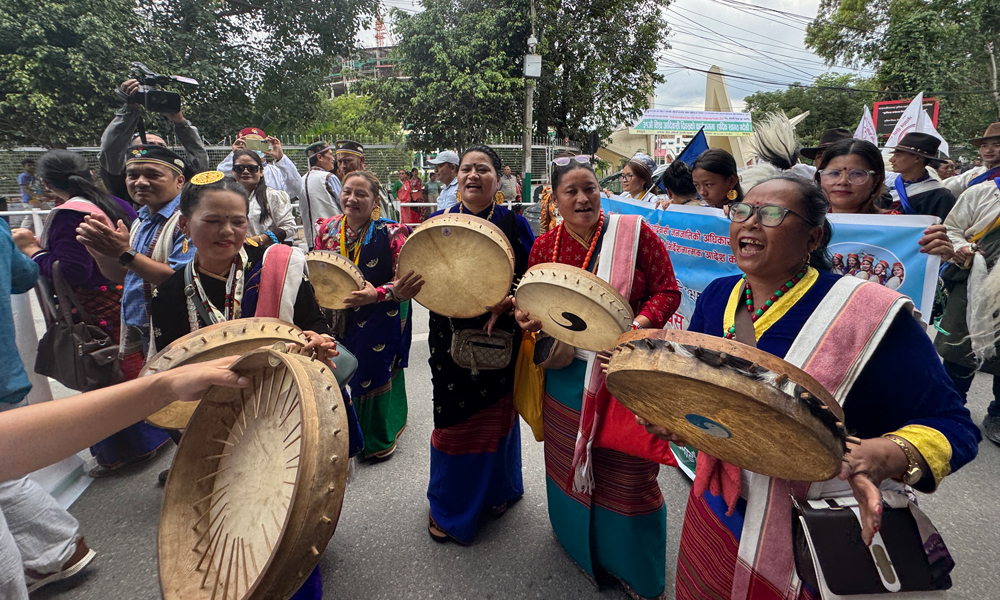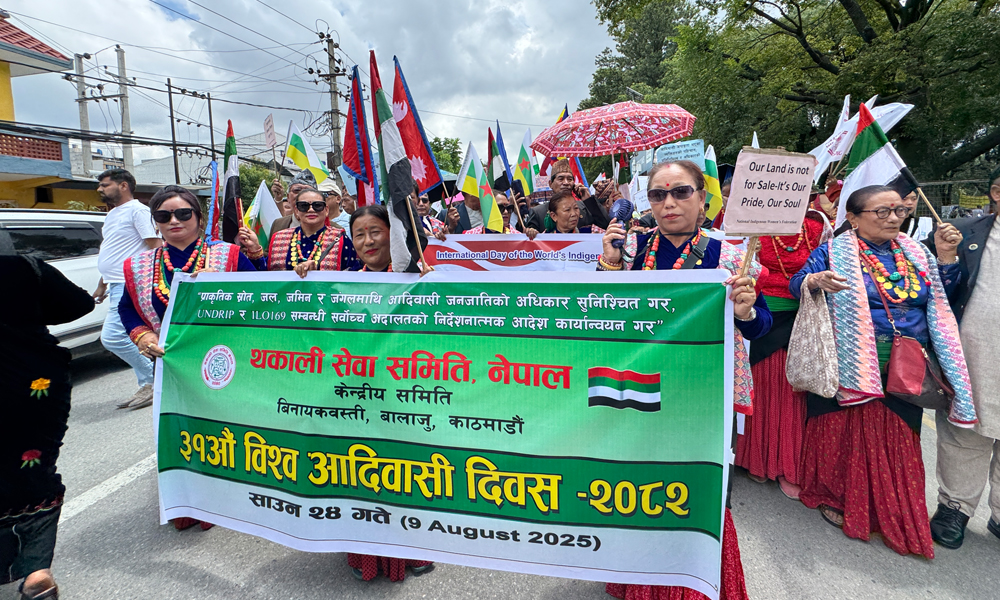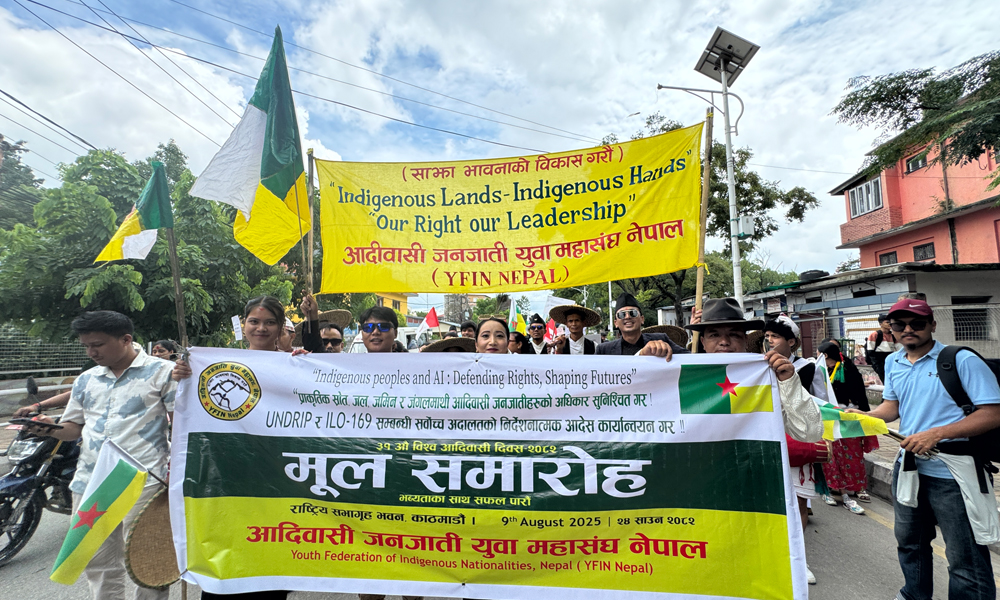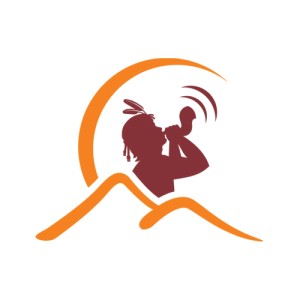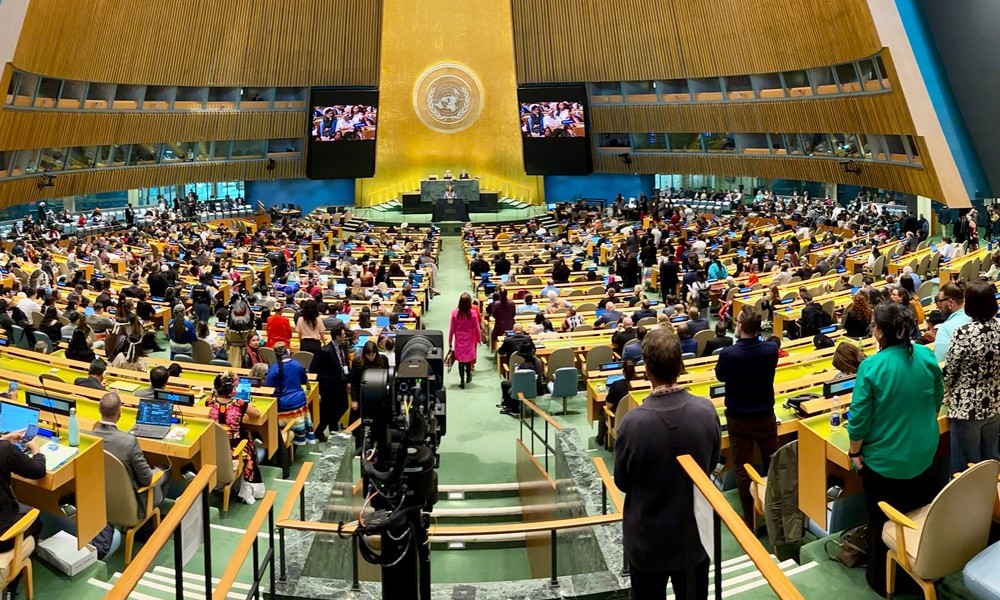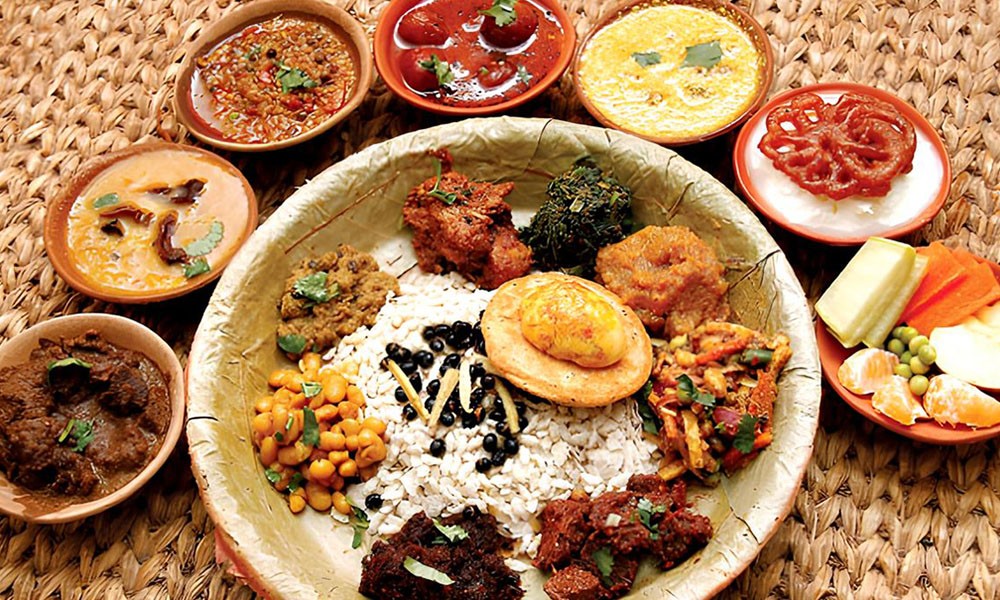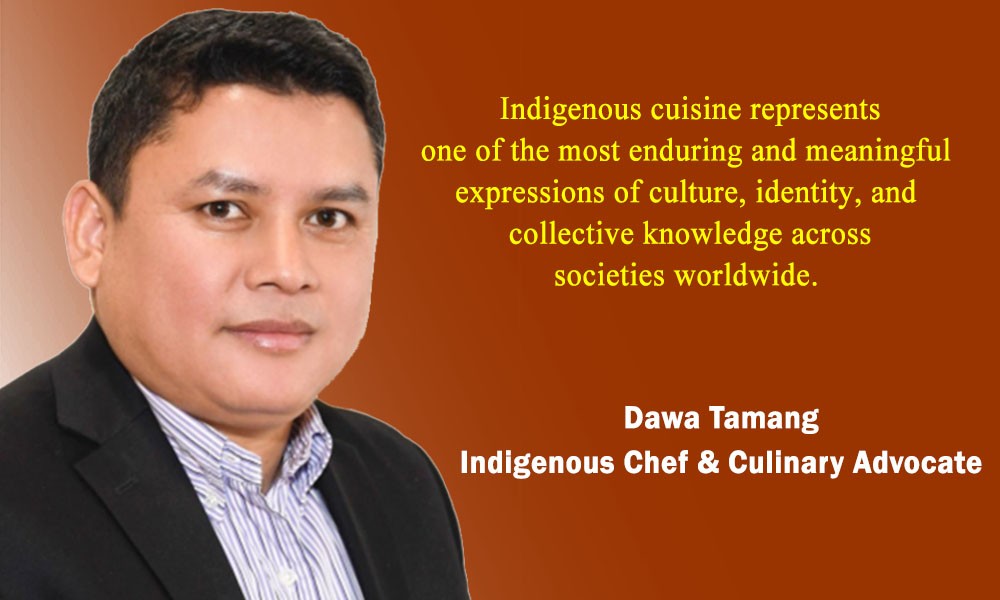Nepal marked the 31st International Day of the World's Indigenous Peoples with a series of events led by the Nepal Federation of Indigenous Nationalities (NEFIN). The celebrations, held on August 9, emphasized the theme, “Ensure Indigenous Peoples’ Rights to Natural Resources, Water, Land, and Forests; Implement the Supreme Court’s Directive on UNDRIP and ILO Convention No. 169.” This year, the UN theme for the day was "Indigenous Peoples and AI: Defending Rights, Shaping Futures."
The main event in Kathmandu brought together Indigenous leaders and activists. Among the speakers was Ngimi Sherpa, president of the National Indigenous Women Federation (NIWF), who highlighted the persistent struggles faced by these communities. “Indigenous communities in Nepal still live in conditions akin to servitude and displacement,” Sherpa stated. “We are excluded from high-level political positions and decision-making processes.” She also noted that, despite the 2015 Constitution, many new laws have failed to secure Indigenous rights, forcing a continuing struggle.
The ceremony also recognized key individuals for their contributions to the movement. Ngima Lama, Chairperson of Chum Nubri Rural Municipality in Gorkha district, was honored for his work in protecting the traditional practices of the Bhote community. The Lawyer's Association for Human Rights of Nepalese Indigenous Peoples (LAHURNIP) was also recognized for its successful efforts in getting a Supreme Court order that requires the inclusion of international Indigenous rights laws, like the UN Declaration on the Rights of Indigenous Peoples (UNDRIP) and the ILO Convention 169, into the laws and regulations of Nepal.
Ensure Indigenous Peoples’ Rights to Natural Resources, Water, Land, and Forests; Implement the Supreme Court’s Directive on UNDRIP and ILO Convention No. 169.
Chief Guest Prithvi Subba Gurung, Minister for Communications and Information Technology, acknowledged the progress made by the Indigenous movement. "The movement has secured significant rights, including recognition of Nepal as a multicultural nation, the right to live with plural identities, and linguistic equality," he said. However, Gurung added that not all desired rights have been fully realized and that existing gains must be protected while the struggle for further progress continues.
Gelje Sherpa, NEFIN president, spoke about the historical loss of rights for Indigenous communities. “Our ancestors had full control over water, land, and forests, but laws like the Land Reform Act stripped these away,” he explained. Sherpa emphasized the importance of fully enforcing the Supreme Court's directive on international laws. He also issued a strong warning: “If the 2015 Constitution or new laws curtail Indigenous rights, NEFIN will not accept it under any circumstances.”
Nepal has officially recognized 59 ethnic groups as Indigenous Nationalities since 2002. The nation also ratified ILO Convention 169 and UNDRIP in 2007. However, activists say that their full implementation remains a significant challenge. This year’s celebrations, which saw participation from various Indigenous nationalities and their organizations nationwide, underscored both the progress achieved and the ongoing need for the full recognition and protection of Indigenous rights in Nepal.
The International Day of the World's Indigenous Peoples is celebrated annually on August 9 to mark the first meeting of the UN Working Group on Indigenous Populations in 1982. The UN has established several mechanisms since 1985 to ensure the rights and participation of Indigenous communities globally, including the Permanent Forum on Indigenous Issues (UNPFII), the Expert Mechanism on the Rights of Indigenous Peoples (EMRIP), the UN Special Rapporteur on the Rights of Indigenous Peoples, and the UN Voluntary Fund for Indigenous Peoples. The UN has also designated periods to highlight these issues, such as the International Decade of Indigenous Languages (2022–2032).
Since 1995, NEFIN and the National Indigenous Women's Federation have organized events in Nepal to celebrate the day. 59 Indigenous nationalities and their affiliated organizations participated in week-long nationwide events this year. The National Foundation for Development of Indigenous Nationalities Act of 2002 officially recognized 59 ethnic groups as Indigenous Nationalities in Nepal. While Nepal ratified ILO Convention 169 and UNDRIP in 2007, their full implementation remains a major challenge. Despite these hurdles, the 2015 Constitution has enshrined some Indigenous Peoples' rights, leading to the creation of commissions like the Tharu Commission and the Indigenous Nationalities Commission. The celebrations underscored both the progress made and the ongoing struggle for the full recognition and implementation of Indigenous Peoples' rights in Nepal.
